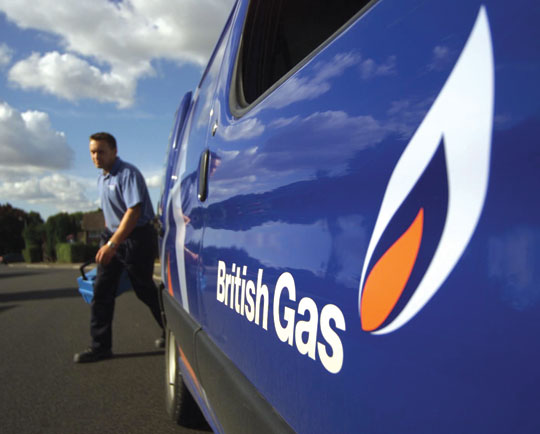Investing
Friday newspaper round-up: British Gas, UK austerity, Microsoft…

British Gas pulls green plans; Osborne ignores IMF warning over austerity plans; Microsoft profits fall.
Hundreds of workers in the insulation industry are at risk of losing their jobs after British Gas broke a promise to insulate thousands of homes free of charge, The Times has learnt. Britain’s biggest energy supplier prematurely pulled a multimillion-pound programme to insulate an estimated 40,000 homes, despite having contracted the UK’s biggest insulation installers to carry out the work. The installers are now having to contact the households that had arranged to have the work done to tell them it has been cancelled. [The Times]
George Osborne insists he will press ahead with the government’s austerity plans despite a warning from the International Monetary Fund that the chancellor should slow the pace of cuts. On the eve of the latest GDP growth figures for the UK economy, the chancellor said the credibility Britain had built up by setting out a tough package of tax rises and spending plans had been “hard won, and easily lost”, adding that it would be “a huge mistake to put that at risk”. The IMF’s chief economist, Olivier Blanchard, said the time had come for the chancellor to act on the Fund’s repeated warnings that if the economy remained weak he should moderate his plans. [The Guardian]
Disappointing sales of Microsoft’s new Windows operating system were compounded last night as the technology company reported a drop in profits. The computer industry had hoped that Windows 8, which was launched in October, would be the saviour of a PC market that has suffered as consumers switched to using smartphones and tablet computers. Microsoft reported that more than 60 million copies of Windows 8 had been sold. Analysts said that this was a solid but unimpressive launch given that the company’s software is installed on more than 90 per cent of computers worldwide. [The Times]
The return of confidence and healthy growth in the US risks setting off a “bond crash” comparable to 1994 and triggering a string of upsets across the world, Bank of America has warned. The US lender said investors face a treacherous moment as central banks start fretting about inflation and shift gears, threatening a surge in bond yields. This happened in 1994 under Federal Reserve chief Alan Greenspan when yields on US 30-year Treasuries jumped 240 basis points over a nine-month span, setting off a “savage reversal of fortune in leveraged areas of fixed income markets”. [The Telegraph]
David Cameron has taken a swipe at Starbucks as he promised that making business pay its fair share would be one of three key aims of Britain’s G8 presidency. “Companies need to wake up and smell the coffee, because the customers who buy from them have had enough,” the prime minister told business leaders (video) at the World Economic Forum in Davos. Protesters targeted Starbucks branches late last year after it admitted it had paid just £8.6m in corporation tax in the UK over the past 14 years. The firm subsequently promised to pay £20m over two years, amid fears of a consumer boycott. [The Guardian]
Mario Monti, Italy’s prime minister, was forced to offer to recall parliament on Thursday amid questions about his government’s handling of the financial crisis at Monte dei Paschi di Siena and the role of the central bank. Shares in Italy’s third-largest bank by assets, which has requested a second state bailout in four years, have fallen more than 22 per cent in the past few days since revelations five days ago of derivatives transactions that may force the 500-year-old bank to restate hundreds of millions of euros of losses. Supervision of the struggling institution by the Bank of Italy while Mario Draghi, European Central Bank president, was governor has come under attack as an increasingly fierce political outcry erupts in the run-up to national elections next month. [Financial Times]
The owners of the Channel Tunnel rail link, known as High Speed One (HS1), will launch a refinancing of its £1.5bn debt mountain, The Independent can reveal. The Canadian consortium of Ontario Teachers’ Pension Plan and Borealis Infrastructure is looking to take advantage of low repayment rates in the corporate-bond market, which has been on fire since the start of the year.[The Independent]
Samsung Electronics has warned that its smartphone business would be hit this year by growing price competition and slowing demand in developed markets, even as it confirmed record earnings for 2012. The world’s biggest technology group by revenue on Friday confirmed that last year’s operating profit rose 88 per cent to Won8.8tn ($8.27bn), with sales growing 18 per cent to Won56tn. That was in line with guidance given earlier this month. [Financial Times]
Department store chain John Lewis has recruited former eBay UK boss Mark Lewis to head its online offering in a new role reflecting the growing importance of its website. He will join the group’s board on 4 March, reporting directly to managing director Andy Street. Employee-owned John Lewis invested heavily in its website at the start of last year, driving a 40 per cent jump in online sales by linking it to its store network with a “click and collect” service. Lewis, who spent six years at eBay in roles including UK managing director and European marketplaces director, is familiar with the “clicks and bricks” approach. [The Scotsman]